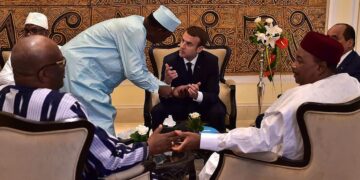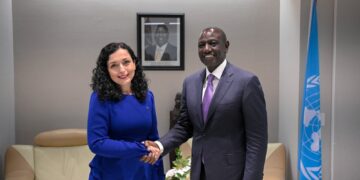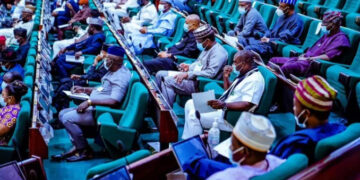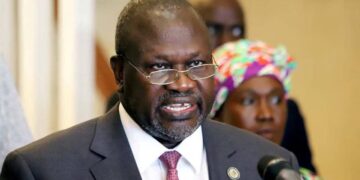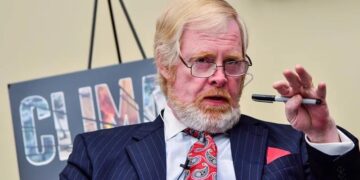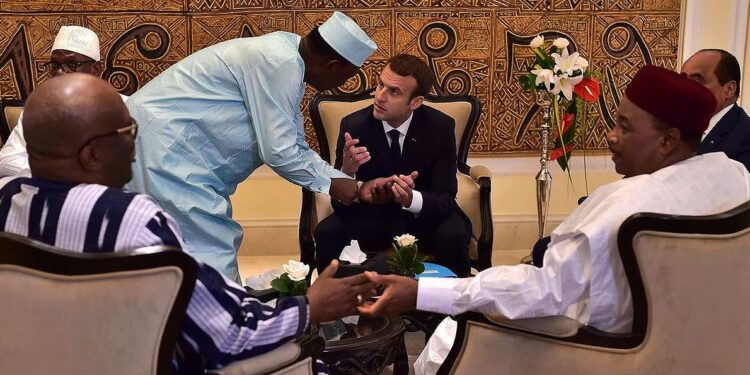By John Ikani
African leaders have rushed to congratulate French President Emmanuel Macron on his election victory over his far-right rival, Marine Le Pen.
Macron won five more years as France’s president after a convincing victory over rival Marine Le Pen, who nevertheless secured the far right’s highest share of the vote yet.
He won by 58.55% to 41.45%, a greater margin than expected.
The centrist leader told jubilant supporters at the foot of the Eiffel Tower that now the election was over he would be a “president for all”.
He is the first sitting president in 20 years to be re-elected.
Among the early congratulatory messages to stem from Africa was that of Senegal’s President Macky Sall, the current African Union chairman. He wrote:
I warmly congratulate President Emmanuel Macron on his victory in the presidential election and send him my best wishes for success in the exercise of his second mandate.
Je félicite chaleureusement le Président Emmanuel Macron pour sa victoire à l’élection présidentielle et lui adresse mes meilleurs vœux de succès dans l’exercice de son second mandat.
— Macky Sall (@Macky_Sall) April 24, 2022
On his part, Ethiopia’s Prime Minister Abiy Ahmed said he looked forward to working with Mr Macron to strengthen ties between the two countries.
https://twitter.com/AbiyAhmedAli/status/1518289058031718401
Not to be left out, President Paul Kagame of Rwanda sent his best wishes, hailing Macron’s leadership that “seeks to unite and not divide”.
Congratulations on your well-deserved re-election President @EmmanuelMacron. This is a testament to your visionary leadership that seeks to unite and not divide. Rwanda looks forward to even more and stronger partnerships between our people and nations.
— Paul Kagame (@PaulKagame) April 25, 2022
What you should know
Macron and Le Pen spent the last two weeks crisscrossing the country to woo those who did not vote for them in the first round.
Macron had to convince voters to back him again despite a mixed record on domestic issues, like his handling of the yellow vest protests and the Covid-19 pandemic.
Le Pen’s campaign attempted to tap into public anger over a cost-of-living squeeze by campaigning hard on helping people cope with inflation and rising energy prices — a major concern for the French electorate — rather than relying on the anti-Islamist, anti-immigration and Euroskeptic positions that dominated her first two attempts at winning the presidency in 2017 and 2012.
She presented herself as a more mainstream and less radical candidate, even though much of her manifesto remained the same as five years ago. “Stopping uncontrolled immigration” and “eradicating Islamist ideologies” were her manifesto’s two priorities, and analysts said many of her policies on the EU would have put France at odds with the bloc.
Though Le Pen had abandoned some of her most controversial policy proposals, like leaving the European Union and the euro, her views on immigration and her position on Islam in France — she wants to make it illegal for women to wear headscarves in public — did not change.
More than one in three voters did not vote for either candidate. Turnout was just under 72%, the lowest in a presidential run-off since 1969, and more than three million people cast spoilt or blank votes.
Much of France was on holiday on the day of the vote, but the low turnout also reflected the apathy of voters who complained neither candidate represented them. Voters who said they were casting blank ballots told the BBC they wanted to punish the sitting president.
Anti-Macron demonstrators rallied in a number of cities, including Paris, Rennes, Toulouse and Nantes, refusing to accept the result.
